Overview of the Role of Contractors in Construction Projects
Contractors play a vital role in the successful completion of any construction project, whether it’s a small residential home or a large commercial building. They are responsible for turning the design plans into reality by coordinating various tasks, managing workers, and ensuring everything is done according to the project’s specifications. Contractors are the people who oversee the construction process from start to finish, ensuring that all the work is done on time, within budget, and according to high-quality standards.
There are different types of contractors, including general contractors who manage entire projects and specialized contractors who handle specific tasks like plumbing, electrical work, or painting. Regardless of their role, contractors are essential for ensuring that a project runs smoothly.
Purpose of the Post
The purpose of this post is to provide a deeper understanding of the responsibilities, importance, and overall impact of contractors in the construction industry. Contractors are often the backbone of construction projects, coordinating between clients, architects, engineers, and construction teams to bring projects to life.
This post will explore the many roles contractors play, from managing resources and ensuring safety on the job site to handling challenges and maintaining quality control. By understanding the critical role of contractors, homeowners, businesses, and project managers can appreciate their value and make informed decisions when hiring for construction projects. Additionally, this post will provide insights into how contractors help keep construction projects on track, while also facing and overcoming the challenges that arise during the building process.
Types of Contractors

General Contractors vs. Subcontractors
In construction projects, contractors are divided into two main categories: general contractors and subcontractors. General contractors are responsible for overseeing the entire project. They manage all the different aspects, from hiring workers to scheduling tasks and ensuring that the project stays on budget and on time. General contractors serve as the main point of contact for the client and are accountable for coordinating the efforts of all the other contractors involved in the project.
On the other hand, subcontractors are hired by the general contractor to handle specific tasks within the project. They focus on specialized work, such as installing plumbing or electrical systems. Subcontractors usually work on one aspect of the project and report to the general contractor, who ensures their work fits into the overall construction plan.
Specialized Contractors
There are many specialized contractors who focus on specific trades within a construction project. These may include:
- Plumbing contractors, who install and repair water systems, piping, and fixtures.
- Electrical contractors, who are responsible for wiring, lighting, and electrical systems.
- HVAC (Heating, Ventilation, and Air Conditioning) contractors, who handle the installation and maintenance of heating and cooling systems.
- Painting contractors, who focus on finishing the project with professional painting and coating.
Each specialized contractor plays a crucial role in making sure the different systems within the project are installed properly and safely.
Contribution to a Construction Project
Each type of contractor contributes to the overall success of a construction project. General contractors ensure that all tasks are coordinated efficiently, while subcontractors provide the expertise needed for specific parts of the project. By working together, contractors help bring the project to completion, ensuring it meets both functional and aesthetic goals.
Responsibilities of Contractors
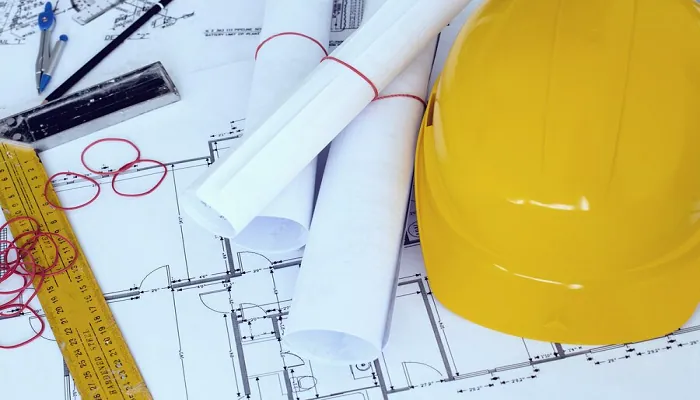
Managing Construction Schedules and Resources
One of the key responsibilities of contractors is managing construction schedules and ensuring that the project progresses according to plan. They organize the timeline for each phase of the project, making sure that materials and workers are available when needed. Contractors also manage the allocation of resources, such as building materials, equipment, and labor, to ensure everything is used efficiently. This helps to keep the project on track and within budget, avoiding unnecessary delays or expenses.
Ensuring Safety Protocols on Site
Another major responsibility is ensuring safety protocols are followed on-site. Construction sites can be dangerous places with heavy machinery, tools, and ongoing work at various heights. Contractors must enforce safety regulations to protect workers and prevent accidents. They are responsible for setting up safety training, providing the necessary safety equipment, and making sure that everyone on the site follows established guidelines. This includes ensuring that the construction site meets legal safety standards and complies with any regulations set by local authorities.
Coordination with Architects, Engineers, and Clients
Contractors also play a vital role in coordinating with architects, engineers, and clients. They act as a bridge between the design and construction phases of the project. Contractors work closely with architects and engineers to make sure that the building is constructed according to the design plans and technical specifications. If any adjustments need to be made, the contractor communicates these changes to both the design team and the client, ensuring everyone is on the same page. Regular updates and meetings with the client help ensure their needs and expectations are met throughout the project.
In summary, contractors have a wide range of responsibilities, from managing schedules and resources to ensuring safety and coordinating with all parties involved. Their role is crucial for the smooth execution and successful completion of any construction project.
The Contractor's Role in Project Planning

Assisting with Budgeting and Cost Estimation
One of the key roles of a contractor in project planning is assisting with budgeting and cost estimation. Contractors provide valuable input by giving accurate cost estimates for materials, labor, equipment, and other project needs. They use their experience to break down the costs of different aspects of the project and help ensure that the budget is realistic and aligns with the client’s financial goals. By providing clear estimates, contractors help clients understand how much the project will cost from start to finish.
Advising on Materials and Construction Techniques
Contractors play a vital role in advising on materials and construction techniques during the planning phase. With their expertise, they can recommend the best types of materials that fit the project’s design, budget, and purpose. Whether it’s choosing durable flooring, selecting the right type of roofing, or recommending eco-friendly options, contractors help clients make informed decisions. They also advise on the most efficient construction techniques, ensuring that the project is built in a way that maximizes both quality and cost-effectiveness.
Managing Timelines and Addressing Unforeseen Issues
Contractors are also responsible for managing timelines during the planning stage. They create a detailed schedule that outlines when each phase of construction will take place, coordinating the arrival of materials and the work of subcontractors. Contractors monitor this timeline throughout the project to ensure everything runs smoothly. If any unforeseen issues arise, such as delays in material delivery or unexpected site conditions, contractors are the first to address them. They adjust the schedule, make necessary changes to the project plan, and keep the client informed to minimize disruptions.
In summary, the contractor's role in project planning is essential. Their input on budgeting, materials, construction techniques, and timelines ensures that the project is well-organized and set up for success.
Importance of Contractors in Quality Control
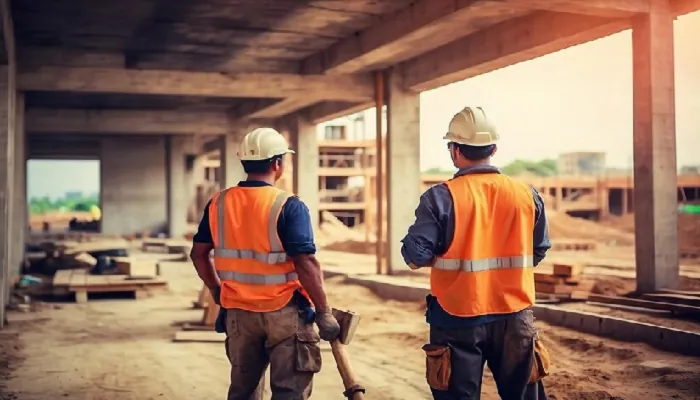
Ensuring Compliance with Building Codes and Regulations
Contractors play a crucial role in ensuring compliance with building codes and regulations. Every construction project must follow local, state, and national regulations to guarantee safety, durability, and legality. Contractors are responsible for understanding these codes and ensuring that every aspect of the project, from the foundation to the finishing touches, meets the required standards. They work closely with architects, engineers, and local authorities to make sure the project follows all the necessary guidelines, reducing the risk of legal issues or costly corrections later.
Overseeing the Quality of Materials and Workmanship
Another key responsibility of contractors is overseeing the quality of materials and workmanship. They are tasked with ensuring that only high-quality materials are used in the construction process. Contractors evaluate materials to ensure they meet the project’s specifications and are suitable for long-term use. In addition, contractors oversee the work being done by the construction team and subcontractors to ensure it is of high quality. By monitoring every stage of the building process, contractors help prevent errors, delays, and potential safety risks.
Conducting Inspections and Tests Throughout the Project
Contractors also conduct inspections and tests throughout the construction project. Regular inspections ensure that the work is being carried out according to the agreed-upon plans and quality standards. Contractors often perform tests on materials like concrete, steel, and electrical systems to verify their strength, safety, and durability. These inspections and tests are critical for identifying and addressing issues early, preventing problems that could affect the safety or stability of the building.
In summary, contractors are essential to maintaining quality control in construction projects. Through careful monitoring, testing, and adherence to regulations, they ensure that the final product is safe, durable, and meets all required standards.
Challenges Contractors Face
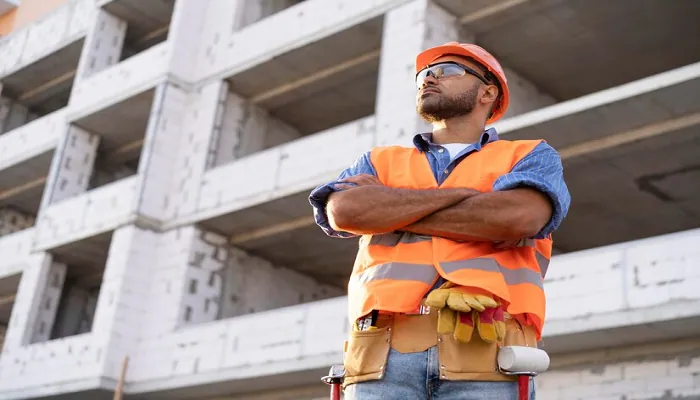
Dealing with Project Delays, Weather Conditions, and Material Shortages
One of the main challenges contractors face is dealing with project delays, weather conditions, and material shortages. Construction timelines can be disrupted by unexpected events like heavy rain, storms, or extreme temperatures. These weather conditions can halt work, delay progress, and increase costs. In addition, contractors often face material shortages or delivery delays, which can slow down the project further. They need to find quick solutions, such as sourcing materials from alternative suppliers or adjusting schedules to minimize the impact of these delays.
Managing Large Teams and Subcontractors
Another significant challenge for contractors is managing large teams and subcontractors. Contractors often oversee various workers on a job site, including plumbers, electricians, carpenters, and other specialized professionals. Coordinating these teams efficiently can be difficult, especially when multiple tasks need to be completed simultaneously. Contractors must ensure that each team works together smoothly, meets deadlines, and adheres to safety protocols. Keeping everyone on the same page, managing conflicts, and maintaining clear communication are vital to avoiding delays and errors.
Navigating Client Expectations and Budget Constraints
Contractors also face the challenge of navigating client expectations and budget constraints. Clients often have specific visions for their projects, but these may not always align with the available budget or timeline. Contractors must manage these expectations while staying within the project's financial limits. This may involve suggesting alternative materials or construction methods that offer similar results at a lower cost. Striking a balance between delivering high-quality work and staying on budget can be a complex task for contractors.
In conclusion, contractors face a variety of challenges, from managing unpredictable factors like weather to coordinating teams and balancing client expectations. Successfully overcoming these challenges requires strong problem-solving skills, effective communication, and careful planning.
The Impact of Contractors on Project Success
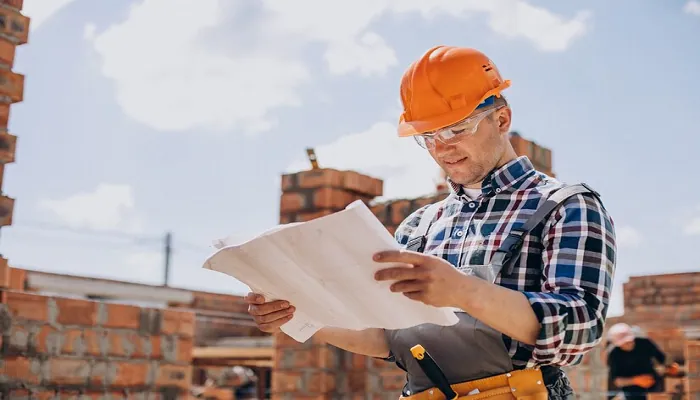
Skilled Contractors and Timely Project Completion
The success of any construction project heavily depends on the skills and expertise of the contractor. A skilled contractor ensures that all tasks are completed on time and according to the plan. They manage the various stages of the project, from sourcing materials to coordinating workers and resolving unexpected challenges. Their ability to anticipate problems, adapt to changes, and keep the project on track is crucial for meeting deadlines. When a contractor has the right experience and knowledge, they can minimize delays, avoid costly mistakes, and ensure the project progresses smoothly.
Efficiency in Managing Resources
Another way contractors impact project success is through efficient management of resources, including labor, materials, and equipment. A competent contractor knows how to allocate resources effectively, ensuring that the right tools and workers are available when needed. This careful management helps reduce downtime and keeps the project moving forward without unnecessary delays. Efficient contractors also manage budgets closely, ensuring that the project stays within financial limits while maintaining high-quality work.
The Importance of Choosing the Right Contractor
Selecting the right contractor for a construction project is essential. Different contractors have different areas of expertise, so choosing one with experience in a specific type of project is crucial. For example, a contractor skilled in residential projects may not be the best fit for a large commercial development. The right contractor will have the skills and knowledge needed to handle the unique challenges of the project. This can lead to better outcomes in terms of quality, cost control, and project timelines.
In summary, skilled contractors are vital to the success of construction projects, as they ensure timely completion, efficient resource management, and high-quality results. Choosing the right contractor is key to achieving a successful project.
Tips for Hiring a Contractor

Look for Experience and Certifications
When hiring a contractor, experience is one of the most important factors to consider. A contractor with years of experience in the type of project you are planning is more likely to complete the work efficiently and to a high standard. Experienced contractors understand how to handle unexpected challenges, manage resources, and maintain quality. You should also check if the contractor holds relevant certifications or licenses. These show that the contractor is qualified and meets industry standards. Certifications in safety and specific construction skills can give you confidence that the contractor will do the job properly.
Check References and Reviews
Another key step in choosing a reputable contractor is checking references and online reviews. Ask the contractor for a list of previous clients you can contact. Speaking to these clients will help you understand the contractor’s work quality, reliability, and how well they communicated throughout the project. Additionally, look for online reviews from trustworthy sources to get a broader picture of the contractor’s reputation. A contractor with positive reviews and satisfied customers is more likely to provide good service.
Clear Contracts and Open Communication
Having a clear contract is essential when hiring a contractor. The contract should include detailed information about the scope of work, timeline, materials, and costs. It helps prevent misunderstandings and ensures both parties know what to expect. Additionally, good communication is crucial throughout the project. Make sure the contractor is responsive and willing to discuss your concerns or questions. Regular updates from the contractor will help keep the project on track and ensure you are satisfied with the progress.
In summary, hiring the right contractor involves checking experience, certifications, and references, while also ensuring clear communication and a well-defined contract to protect both parties.
Contractors play a critical role in the success of any construction project, from managing schedules and resources to ensuring quality and safety standards are met. They are essential in coordinating with other professionals and keeping the project on track. Selecting an experienced and reputable contractor is key to achieving a smooth, efficient, and high-quality result. By choosing the right contractor, you can be confident that your project will be completed to your satisfaction, within budget, and on time. Always check experience, certifications, and references before making your decision.
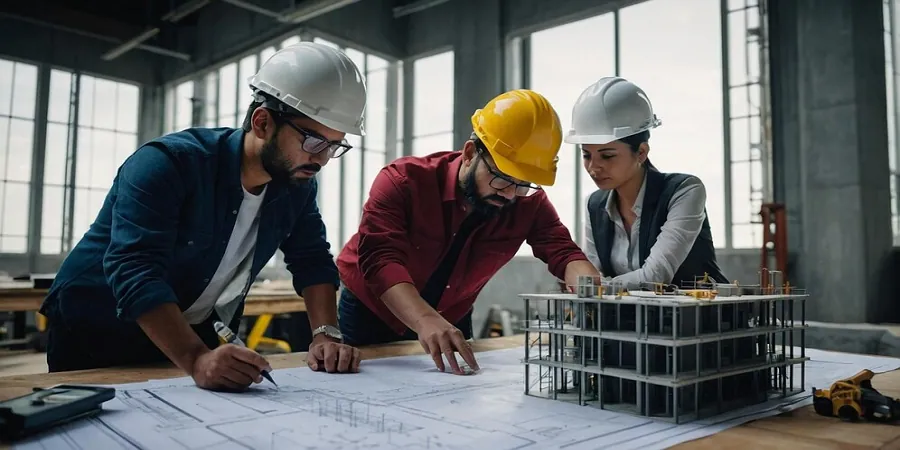
Comments